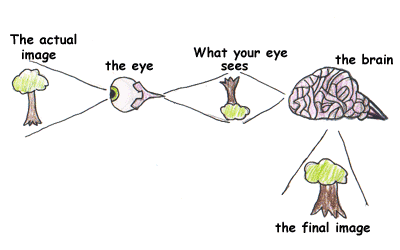psychophysical harmony is non-automatic but convergent
Marxist philosophical anthropology beats an interesting argument for theism
Psychophysical harmony is a sort of mind-body problem that proposes some interesting difficulties for existing models of consciousness, and that Brian Cutter and Dustin Crummet in a recent paper consider evidence for theism. Per C&C,
Roughly, psychophysical harmony consists in the fact that phenomenal states are correlated with physical states and with one another in strikingly fortunate ways. For example, phenomenal states are correlated with behavior and functioning that is justified or rationalized by those very phenomenal states (e.g., pain is correlated with avoidance behavior), and phenomenal states are correlated with verbal reports and judgments that are made true by those very phenomenal states (e.g., we say, “I’m in such-and-such phenomenal state,” and sure enough, we are.)
Crucial to this argument is the claim that functionalist explanations, such as that given by evolution, will not serve to explain the harmony; after all, it could just be a metaphysical or other law that phenomenal suffering results from biological reward signals as the reverse; that, somewhere, there is a counterpart world where
The psychophysical laws could conceivably have mapped [avoidance stimuli onto pleasure, while mapping the actual neural basis of pleasure onto pain. In this pleasure/pain inversion scenario, we would systematically avoid a state we have reason to pursue (pleasure), and systematically pursue a state we have reason to avoid (pain). Our lives would be a pathetic farce: we would cower from pleasurable experiences and happily inflict pain on our loved ones. Alternatively, the psychophysical laws could have correlated X with some evaluatively neutral state, resulting in a less extreme mismatch. Either way, our behavior and functioning would be wildly out of line with the behavior and functioning that is justified or rationalized by our phenomenal states.
Your reasoning and perceptions could be off, particular action-intention matches could be off, pleasure and pain inverted. Thank goodness - or perhaps more specifically God - that we don’t live in such a world!
I think this is a useful and stimulating question to pose, but I also think a resolveable one.
an optimization process will figure out the intention-action correspondences and name them accordingly over time
Suppose you are used to typing on a QWERTY keyboard and, unbeknownst to you, a computer virus changes your computer’s settings to DVORAK. Thus would result a pretty clear instance of psychophysical disharmony: you try to produce a Q, you end up producing a D, the intention of typing W produces V, and so on.
Over time, if you couldn’t resolve the problem in any other way, you would… just learn to type in DVORAK! In the keyboard, perhaps both QWERTY and DVORAK are reasonably well-designed for typing, but neither of them creates a “natural” harmony between the letters you imagine in your head and the associated motions of your fingers. Instead, the harmony which eventually exists between these two things is achieved by you and, eventually, exits phenomenal consciousness for most purposes as it is mastered, and your conscious awareness moves up a layer of abstraction to think about the words you’re typing or the ideas you’re conveying.
When humans are born they have to learn how to make basic movements; over the first year, they practice and practice and eventually learn the complicated sets of simultaneous movements to crawl and eventually walk. An adult walks without thought - her intentions translating into locomotion so harmoniously it seems mysterious - then gets into an accident, has to train with a physical therapist to figure out how to walk again.
One could imagine an Evil Keyboard. The Evil Keyboard knows your intention and thwarts it every time. You try to produce a Y, it produces a J. You make a note on the notepad to keep track of that being a J, and use it when you want the J, and it gives you a Y, just out of spite. The Evil Keyboard, like a parallel Friendly Keyboard that automatically results in the letter you intend, is a complicated hypothesis of low prior probability. But the set of keyboards you can eventually get to psychophysical harmony with isn’t “only the Friendly Keyboard,” it’s “everything but the Evil Keyboard.”
preference precedes valence
I actually agree that it would be a huge coincidence for pleasure to be valuable and, completely separately from that, motivate us. But instead I think the first property, and (very nearly) our having the word “pleasure” for it at all, are functions of the second property.
What makes an experience pain in the morally relevant sense? It isn’t nociception (the bare awareness of physiological pain); in the context of sports, or sexual fetishes, or the like, the awareness of physiological pain can be phenomenally pleasant. The same applies to sadness or fear - the awareness of loss, or engagement to danger, can be intensely pleasurable when engaging in art with that purpose in mind.
The simplest explanation here is that physiological pain or sorrow or fear are pleasure or suffering is just a way of describing whether the experience is preferred or not - not the whole package, just the experience under question itself. (I might prefer to get a cavity filled but not have the experience of the physiological pain while I do so, hence anaesthesia.) A given experience can be both pleasurable and painful insofar as you have contradictory preferences about it, of course.
Preferences are motivating by definition and I would argue they are normatively relevant, basically the basic type of normatively relevant thing.
what if your red is my green?
Colors are less normatively interesting than pleasure and pain, but they have a record of being philosophically interesting; that our experience should take the form of particular colors has motivated more than one person to reject physicalism. C&C accept my account above for pleasure and pain, while provisionally accepting it for color:
Granted, some of the semantic correspondence between our introspective judgments/reports and our experiences can probably be explained by the fact that our experiences help determine the meanings of our introspective reports and the contents of our introspective judgments. Consider a world physically just like ours, but in which our counterparts’ experiences are spectrum-inverted relative to our own. When they look at a ripe tomato, they say things like, “I am having a phenomenally reddish experience,” even though they are having (what we would call) a phenomenally greenish experience. Still, it’s plausible that they say something true because, for them, “phenomenally reddish” refers to phenomenal greenishness. It’s not as though we’re lucky not to be spectrum inverted. But even though experience plausibly plays some role in determining the meanings of our introspective reports and the contents of our introspective judgments, this does not remove the apparent luckiness involved in the examples of semantic harmony above. Our statements and judgments about phenomenal similarity (“this experience is more similar to this other experience than that experience”) would have been false under many possible psychophysical laws, such as laws that permute our reddish and orangeish experiences or laws that map all physical states onto the same buzzing-noise experience. Likewise, statements and judgments about the structure of experience, like “this experience involves an acquaintance relation with redness and roundness,” would presumably have been false if the psychophysical laws had given us an ear-ringing experience in place of a phenomenal presentation of a red and round object.
I think this either does extend that far, or else, the experiences wouldn’t convey isomorphic information and thus couldn’t play the same causal role. There is no redness out there; redness is the name we give to visual experiences. If the ear-ringing experience could be mapped onto visual information conveyed, then someone having the right kind of ear-ringing experience and saying “I am having a reddish experience” would be correct.
I think the intuition here is “you know, sensory information could be phenomenally perceived in, like, any random way.” My feeling is that the phenomenal experience of color and sound are pretty weird and random, weird and random enough to be at least some evidence against physicalism. But it’s not the case that “wow, isn’t it a coincidence that a red tomato presents itself as red?”
the parable of the inverted eye
It’s a bit of folk wisdom that the brain “flips” the image that comes out of the eye: after all, the light gets projected onto the inner part of your retina upside down, yet you see it in your mind’s eye as right-side up…
I don’t know anatomy so I can’t comment on the accuracy of this folk wisdom from that standpoint, but I will say: what does it even mean to say it is right-side up in our mind’s eye? Isn’t “up” in this case just our word for [that direction]?

when not specifically achieved, psychophysical harmony does not exist
My body, presumably, is capable of doing all the motions that would make up the tango. But I can’t form an intention to “dance the tango” and do it - I don’t know how. (Based on a few dates we’ve gone on at ballroom events, I can’t even do a basic box-step, although perhaps if I were motivated to grind at it I would get there eventually.)
I want to be harder-working, less defensive, and so on; I have weakness of will and these second-order preferences do not always win out over my first-order ones.
There are things you could show me, perceptions of real things, that I wouldn’t know how to recognize or categorize.
These aren’t pathological cases! They’re just the default cases, of where no psychophysical harmony exists because none has been created through learning.
political addendum
I consider this a W for Marxist philosophical anthropology. C&C’s argument is a bit like grace at dinner: crediting God with what is actually the ongoing result of human and other natural labor.
Concepts, likewise, are not just given (at least generally are not) but are built as tools by people laboring at ends.
If I were being especially cheeky, I’d note that there’s something of commodity fetishism in hedonic conceptions of value. That is, the presuption that we are trying to achieve a total amount of some quantitative essence is something that makese sense under only some social conditions; the capitalist firm has a simple goal like this, but humans want many qualitatively different things.
A perfect world, perhaps even an adequate world, has not been given to us. But the nature of agency is such that we have and can continue to fashion the world anew.





